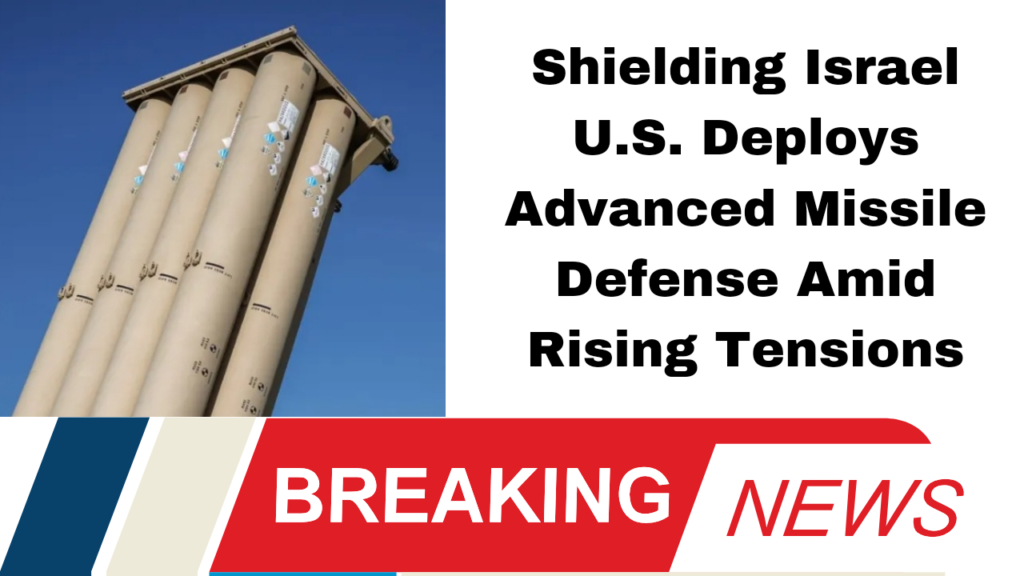Pentagon Confirms Troop Deployment to Support Israel’s Defense
The United States has announced the deployment of an advanced missile defense system, the Terminal High Altitude Area Defense (THAAD), to Israel, marking a significant escalation in military support amid the ongoing conflict in the region. This decision follows the Hamas-led attacks on October 7, 2023, and comes with the deployment of approximately 100 American troops tasked with operating the system.
Strengthening Israel’s Defense Capabilities
In a statement from the Pentagon, Press Secretary Maj. Gen. Patrick Ryder confirmed that Defense Secretary Lloyd J. Austin III directed the deployment of THAAD. The system is designed to intercept and destroy short- and intermediate-range ballistic missiles, offering an additional layer of protection to Israeli cities, military personnel, and critical installations.
“This action underscores the United States’ ironclad commitment to the defense of Israel,” the statement read, emphasizing the importance of safeguarding Americans in Israel from potential ballistic missile threats, particularly from Iran.
Context of the Deployment
This deployment comes at a time of heightened tensions, following Iran’s launch of approximately 200 missiles at Israel on October 1. As Israel prepares for retaliatory actions, the THAAD battery is expected to be operational within a week, providing crucial defensive capabilities as the conflict intensifies.
General Ryder reiterated that the battery would “augment Israel’s integrated air defense system,” reinforcing the strategic partnership between the U.S. and Israel.
U.S. Military Presence in the Region
The recent troop deployment marks the first U.S. military presence in Israel since the escalation of violence in Gaza. In recent weeks, the Pentagon has adjusted its military posture in the region, previously sending thousands of troops to support Israel amid ongoing hostilities with Hezbollah in Lebanon, Iran’s key proxy.
Despite the U.S. intention to bolster Israel’s defenses, some Pentagon officials express concerns about the implications of increased military presence on regional stability and U.S. combat readiness. Discussions among senior military leaders, including Gen. Charles Q. Brown Jr., have raised questions about balancing support for Israel while managing potential repercussions from Iranian actions.
Diplomatic Communications and Ongoing Conflict
Recently, Secretary Austin spoke with Israeli Defense Minister Yoav Gallant, expressing concerns over Israeli military actions impacting U.N. peacekeeping positions in Lebanon, which have led to casualties among Lebanese soldiers. This highlights the delicate nature of the situation as military operations escalate.
As of now, the Israeli military has reportedly targeted around 200 Hezbollah positions in Lebanon over a single day, further complicating the regional dynamics
The U.S. deployment of THAAD to Israel underscores a significant commitment to Israeli defense amid ongoing hostilities in the Middle East. As the situation evolves, the impact of U.S. military support on both regional stability and the broader strategic landscape will remain closely monito Red by international observers.











More Stories
Understanding America’s Regional Patchwork A Guide to the Key Political Areas
The Electoral College Debate A Closer Look at Its Impact on Modern Elections
November’s Unsettling Tropical Outlook Potential Storms Loom in the Atlantic